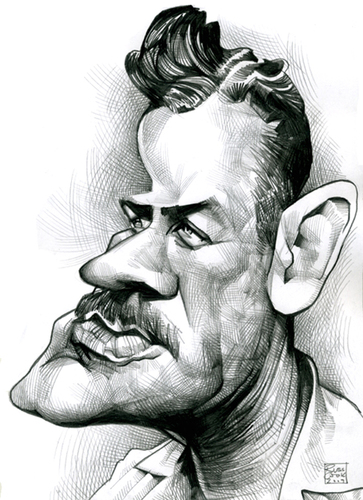“May what I do flow from me like a river,
no forcing and no holding back,
the way it is with children.”
~ Rainer Maria Rilke
It's hard enough to write without having to worry about whether you're "in the zone" or "in the flow." If you're fretting that, you're doing it wrong.
The concept of flow is quite real, but it has a specific meaning. It's not some blast of inspiration from above. Wait for that to write and you'll slip from this life at your keyboard, covered in cobwebs.
The chap who came up with this concept is a Hungarian psychologist with an impossible name -- Mihaly Csikszentmihalyi (pronounced Cheek-sent-muh-hy-ee). Here's how he sees it:
The concept of flow is quite real, but it has a specific meaning. It's not some blast of inspiration from above. Wait for that to write and you'll slip from this life at your keyboard, covered in cobwebs.
The chap who came up with this concept is a Hungarian psychologist with an impossible name -- Mihaly Csikszentmihalyi (pronounced Cheek-sent-muh-hy-ee). Here's how he sees it:
According to Csikszentmihalyi, flow is completely focused motivation. It is a single-minded immersion and represents perhaps the ultimate experience in harnessing the emotions in the service of performing and learning. In flow, the emotions are not just contained and channeled, but positive, energized, and aligned with the task at hand. The hallmark of flow is a feeling of spontaneous joy, even rapture, while performing a task although flow is also described (below) as a deep focus on nothing but the activity – not even oneself or one's emotions.To achieve flow it is suggested that:
- One must be involved in an activity with a clear set of goals and progress. This adds direction and structure to the task.
- The task at hand must have clear and immediate feedback. This helps the person negotiate any changing demands and allows them to adjust their performance to maintain the flow state.
- One must have a good balance between the perceived challenges of the task at hand and their own perceived skills. One must have confidence in one's ability to complete the task at hand.
Perhaps the two most important ingredients for flow are motivation and ability in the person. If you can’t paint worth a lick, no amount of motivation will let you abandon conscious effort, because you just aren’t good enough. Conversely, a world-class author won’t produce anything of value if she has no desire to even sit at the computer, let alone write. The more you have of both, the easier reaching flow becomes.The lesson, then, is to discover where what you love doing overlaps what you are capable of doing well.
More insight for writers comes from Romanian journalist Simina Mistreanu, who interviewed seven award-winning journalists and came up with this insights:
Reporting and being part of other people’s lives triggers flow. These journalists find purpose in shedding light onto difficult, often heart-wrenching issues. That connection — between mission and joy — was echoed by the seven accomplished writers who use longform narratives to cover sensitive social issues.
I don't know that Csikszentmihalyi explicitly included a sense of mission as necessary for flow. It makes sense, however, in that how a writer views his work informs his passion and motivation. In other words, his writing has meaning.
In the end, the only way to find your zone is to sit down and start writing. "I write when I'm inspired," Peter De Vries said, "and see to it that I'm inspired at nine o'clock every morning."






